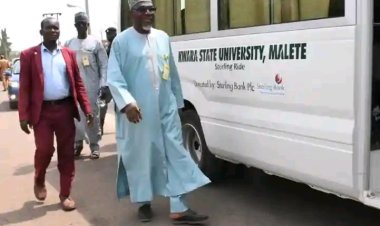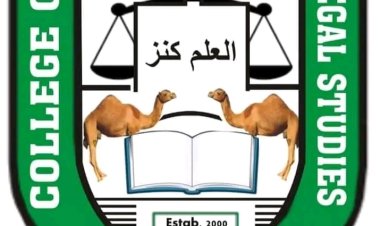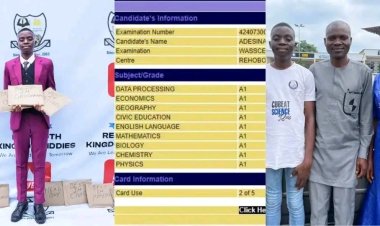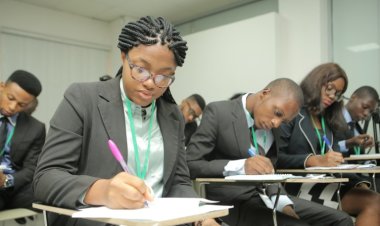Na Your Mama!’: The Three Words That Shook a Nursing School—and Nigeria’s Elite
When Nigerian nursing students changed ‘our mama’ to ‘your mama’ in a song for the First Lady, their college threatened punishment. Why silencing dissent harms democracy.
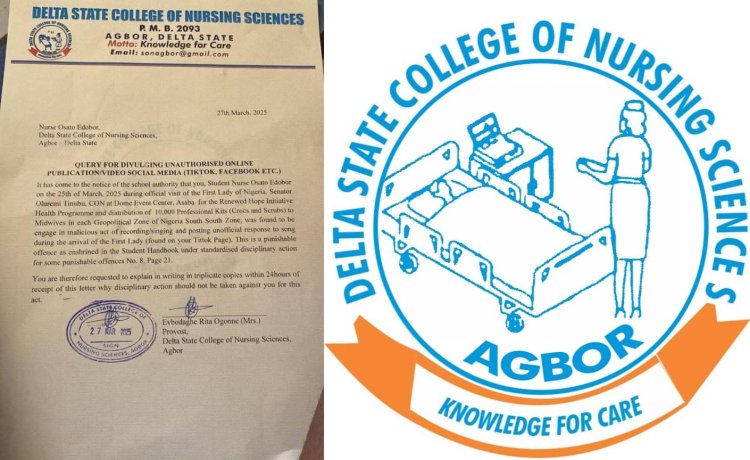
The Delta State College of Nursing Sciences (DSCNS) recently ignited controversy by threatening disciplinary action against Student Nurse Osato Edobor for documenting a protest during the visit of Nigeria’s First Lady, Senator Oluremi Tinubu. The incident, which unfolded on March 25, 2025, at the Renewed Hope Initiative Health Programme in Asaba, took a symbolic turn when students subverted a song meant to honor the First Lady—transforming it into a quiet but potent critique of Nigeria’s leadership.
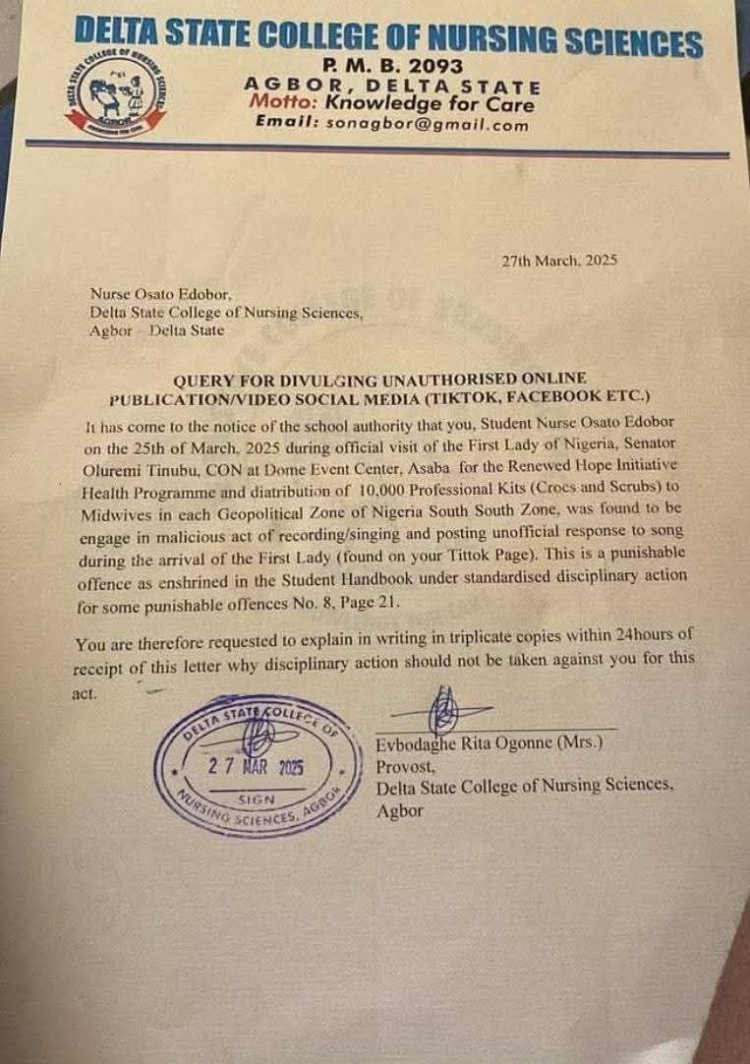
The Protest: A Lyric Rebellion
During the event, the Master of Ceremonies led a call-and-response song: “Na our mama be this o, we no get another one!” (“This is our mother, we have no other!”), expecting students to reply, “Na our mama be this o o!” (“This is our mother!”). Instead, the students defiantly altered the lyrics, chanting “Na your mama be this oo!” (“This is your mother!”). This subtle shift from “our” to “your” linguistically distanced the First Lady from collective ownership, framing her as a figure belonging solely to the political elite rather than the people. The act, though peaceful, carried profound symbolism: a rejection of performative loyalty and a demand for accountability from leaders perceived as out of touch.
Edobor’s “offense” was recording this moment and sharing it on TikTok—a platform where Nigerian youth increasingly voice dissent amid shrinking civic spaces. The college’s disciplinary query accused her of “posting unofficial response to song,” citing a breach of its Student Handbook. Yet, the institution’s response overlooks the protest’s context: a generation’s frustration with systemic inequality, economic hardship, and unfulfilled promises under the Tinubu administration’s “Renewed Hope” agenda.
Democratic Expression vs. Institutional Repression
By reducing this act of dissent to a “punishable offence,” DSCNS exposes a troubling disregard for democratic principles. Nigeria’s Constitution (Section 39) guarantees freedom of expression, and the students’ lyrical critique—far from “malicious”—was a creative exercise of this right. Their protest was neither violent nor disruptive; it was a linguistic rebellion, leveraging the power of language to question authority.
The college’s reaction reflects a broader pattern in Nigerian institutions: equating dissent with disloyalty. Demanding written justification from Edobor within 24 hours—under threat of punishment—prioritizes bureaucratic control over dialogue. It also raises critical questions: Should students be compelled to parrot state-sanctioned slogans? Or should academia encourage critical engagement with societal issues, even when uncomfortable?
The Irony of “Renewed Hope”
The event’s theme, “Renewed Hope,” juxtaposes starkly with the college’s punitive stance. While the government distributed nursing kits to midwives, students highlighted a deeper malaise: the erosion of hope in a system that silences its youth. The protest’s viral spread on social media underscores a generational divide—between leaders clinging to performative gestures and a digitally savvy populace demanding tangible change.
A Call for Institutional Accountability
Rather than disciplining Edobor, DSCNS should reflect on its role in fostering democratic values. Nursing students, as future healthcare advocates, must learn to question inequities—whether in hospitals or halls of power. Suppressing their voices undermines their training and betrays academia’s mission to cultivate critical thinkers.
The Delta State College of Nursing Sciences faces a choice: double down on authoritarianism or embrace its students’ courage to reimagine “hope” through accountability. The altered lyrics—"Na your mama be this oo!”—are more than a protest; they are a mirror held to Nigeria’s leadership. Institutions like DSCNS must decide whether to shatter that mirror or heed its reflection. True “knowledge for care” begins with caring enough to listen.

